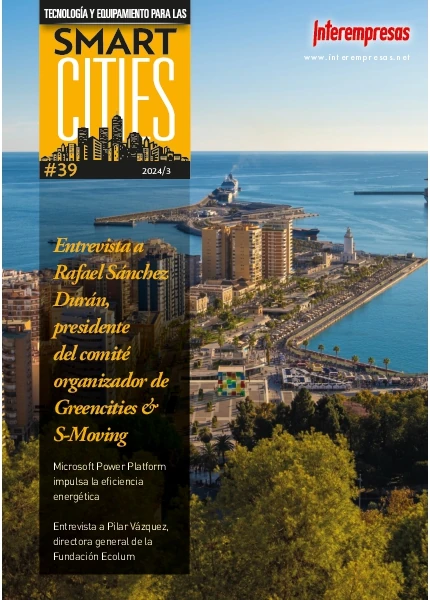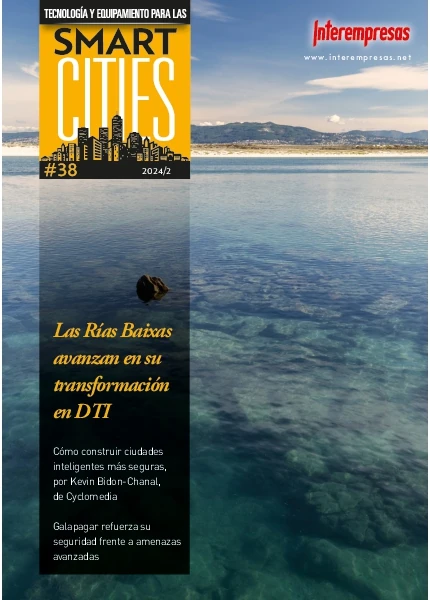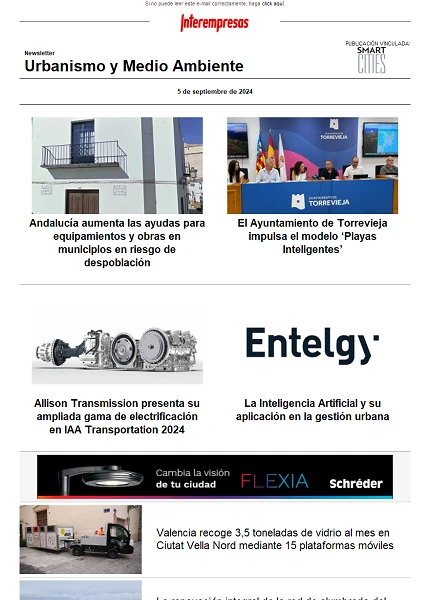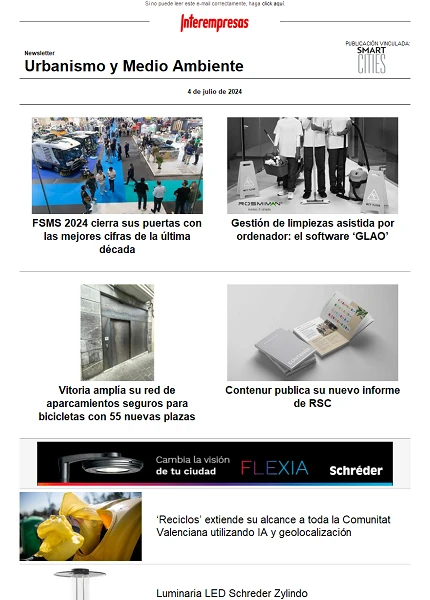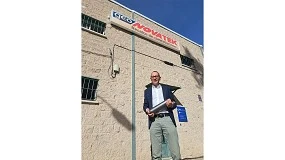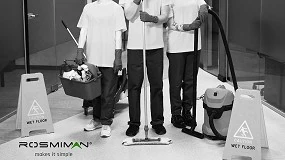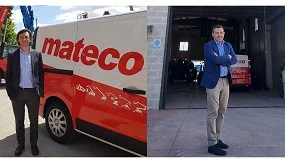Interview to Ion Olaeta, president of FER and member of the committee organiser of Tecma 2012
5 June 2012
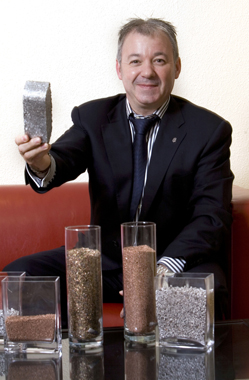
Which is our situation in matter of recovery and recycling in comparison with the rest of the world developed?
It would have to be the prevention of waste the first step in all the process of the recycling?
Definitely, the better residue managed is the one who does not generate , to the equal that the greenest power is the one who does not consume . A society that aspire to be sustainable has to have clear the hierarchy of the management of the waste so that, first, reduce the generation of waste; second, reutilice that that can and, in third place, recycle the rest so that they take advantage of the raw materials contained in the waste that, in cases like the steel supposes 80% of the raw materials of the Spanish siderurgy.
Nevertheless, unfortunately, the current technology does not allow to recycle 100% of the no reusable waste and a part of the same have to be managed by other roads like the energetic valorisation. In the FER, are shipped, for example, in a series of projects of R&D to achieve that 13% that still does not recycle of the vehicles out of use do not finish in a dump of inert, but it take advantage of the potential calorífico of these lines of waste. Of this form, will attain in 2016 the aim of 85% of the recycling of vehicles and 95% of valorisation.
Like clear aim have to see that the dump supposes the defeat of all the system of waste management. We have to follow working, to look for alternatives to the waste management in the upper ladders of the hierarchy of waste management.
Which is the difference between recovery and recycling? Which practises more?
The recovery does reference to the origin of the waste that, of some form, recover “” of the current of waste to be managed in our installations.
The recycling does reference to the action to recycle that it carries out in the installations of our partners. It consists basically in generating raw materials recycled, that can serve of imput in the productive processes substituting of direct form to the natural raw materials.
Both terms go totally joined, since without recovery can not have recycling and in fact, in some moments both can confuse, since there is material simpler to recycle, in which the mere process of recovery involves his recycling.
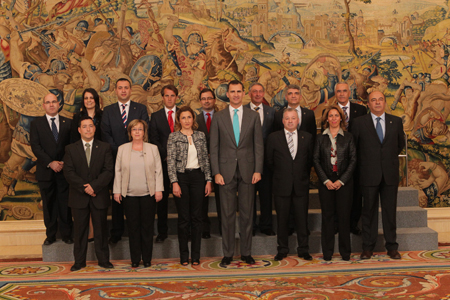
Which waste attain to recover and/or recycle in greater measure? And those that less?
Definitely, by his reciclabilidad and unitary value, are the so much ferric metals as no ferric those that more recycle . The metals (steel, aluminium, copper, lead, etc.) have a characteristic that gives them some special qualities for his recycling and is that they do not degrade when recycling it one and again.
In the case of the metals have in Spain like example very stood out the lead, since his reciclabilidad boundless has allowed that in our country 100% of the lead that uses (mainly for the batteries of automotive sector) was recycled. 20 years ago that closed the last mine of lead in Spain.
Other materials like the plastics or the paper go degrading to measure that go recycling, so that the continuous contribution of new materials is necessary to keep the cycle of production in operation.
Finally have complex materials whose recycling is practically unfeasible from an economic point of view since technically, and if we had all the money of the world, in principle all the materials would be recyclable. Inside this group would have some complex plastics or some oils, dissolvent and paintings.
We recycle well the Spaniards? And our companies and industries?
This question would answer in a double slope. The Spaniards and the companies help to recycle but still is not sufficient. It has advanced a lot in the last 15 years but still remains us a lot for advancing. The citizens in his group have to give account that the waste have not appeared here by art of magic, but they are the fruit of his consumption of products and, for this reason, have to assume his part to the hour to ensure the recycling and correct management of the waste that his products generate.
Go little by little separating the waste in our domiciles, but this focuses mainly to the containers and forget that other a lot of waste do not manage through this road. Therefore the citizens have to accustom to carry regularly another waste like his appliances, the oil of his kitchen or the battery of his car to the clean points. If the citizens pipe properly the waste that produce his recycled is ensured, if no, his recycled peligra.
And in it tocante to the companies the lesson would be the same. They have to be conscious of the waste that produce and ensure that the same receive the best treatment and no only the cheapest. We have advanced but it is necessary to follow advancing.
What it would be necessary to do so that it recycled more?
In the measure in that we simplify the materials with which manufacture the products facilitates the recycling. If the crowbar of the turn signal of a car has five distinct types of plastic his recycling is unfeasible. It has to homogenise more the production and facilitate the works of desmontaje. Also it would have to penalise the poured, since if this is the most comfortable road, easy and cheap, the recycling will not have opportunity. And finally the most important subject: the citizen has to consume products recycled.
Which data of recycling would stand out?
Could give infinity of data, but will give some that can give an idea of the envergadura of the task that tackle:
- In Spain recycle 13 million tonnes of ferric scrap, 8 of which are pertinent domestic scraps of the Spanish market.
- 100% of the lead that produces in Spain is recycled.
- Manage to the year 320.000 tonnes of tyres out of use.
- 60% of the aluminium and the 50 % of the copper that produces is recycled.
- To the year recycle 1 million of vehicles out of use.
- Thanks to the sector recuperador in Spain recycle more than 4 kg of Waste of Electrical and Electronic Devices (RAEEs) by inhabitant and year.
It has advanced a lot the sector in the last years?
In the last 15 years, the sector has lived a true revolution. We have happened of a traditional sector of the recovery to one of the most leading sectors in new technicians of recycling. Certainly this change has seen improved and accompanied of a global change in the environingingmental legislation and in the own society. The legislation has gone us putting put to reach and like sector, have gone reaching them.
On the other hand, the globalisation also has supposed an opening of the borders and therefore an increase of the competition, with what the sector of the recycling has seen spurred to have a continuous improvement. Definitely, the way that remains us for visiting is still long but have advanced already a good trecho.
It is adapted the legislation that governs the sector or it would be necessary to toughen it more to restrict some practices?
The legislation is complex and, in fact, has developed a lot in the last 10 years. Good sample of this is the recent Law of Waste and Floors Contaminated. Unfortunately, the problem of intrusismo that are suffering in the sector by part of companies that implant in the sector without fulfilling any norm is creating true problems to our associated.
The solution does not consist in doing new norms or in toughening the existent. The norms are here, the problem is that the “intrusistas” directly do not fulfil the norms. What it would be necessary to do is to have a greater control and surveillance of these external actors to the system, so that they can not carry out his activity without fulfilling environingingmental norm any. As it is used to say, does not be necessary to do more laws, it is necessary to apply them.
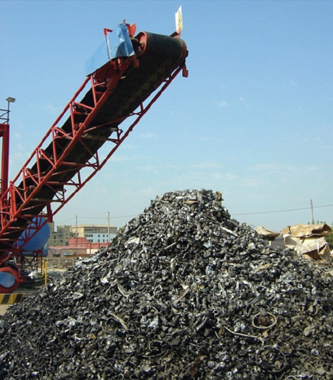
From the administrations gives the necessary support so that employers (included SMEs) are conscious of the measures that have to take?
The current national panorama with 17+1 environingingmental authorities, does very complex the development of measures coordinated of support to the recycling. In a lot of cases the measures created with the best intention from the environingingmental point of view, limiting for example the transport of waste between Autonomous Communities, what attains is precisely the contrary, put barriers to the recycling to the not being able to carry the waste to the place where is the plant that can recycle them.
Definitely, the administrations can support the one who the companies take consciousness of the need to manage properly his waste. In the measure in that the administrations presionen to the companies, these will have to look for solutions for his waste and here will be the sector of the recovery and the recycling to take the witness.
How much costs to recycle? It treats of a process that can be profitable in more appearances apart from the environingingmental?
Think that what would have to concern us is how much costs us not recycling. We live in a planet with scarce resources and with an increasing need of resources. If we do not recycle the cost of the raw materials would increase of exponential way.
The recycling is important economic and environingingmentally. Obviously it treats of a business activity and, as such, has to have spirit of lucre, since if no the investments and the advance will be impossible.
Which are the most immediate challenges in matter of recycling in our country?
If we take into account the million tonnes of waste managed, how much recycles this sector, the raw materials that provides and the broadcasts of CO2 that avoids, think that the contribution of the sector to the environingingment is nowadays fundamental.
Now well, of face to the future, our aims like sector would be basically follow boosting between our associated the exchange of experiences and the continuous technological improvement, the defence and diffusion of the contribution of the sector recuperador to the environingingment and the fight against the intrusismo and the disloyal competition that, in occasions, suffer by part of companies that pretend to obtain fast profits breaking the environingingmental norms.
Have reached today very good quotas of recycled, but of face to the future the advance has to continue having like horizon the one of the Residue Zero, so that we are able to recycle all what arrives us. This put already have reached it in questions like the recycling of batteries of lead or of the televisions with tube of rays catódicos, but the challenge is continuous, since each day go out to the new market products and each one of them supposes a challenge to attain recycle it to the maximum.

